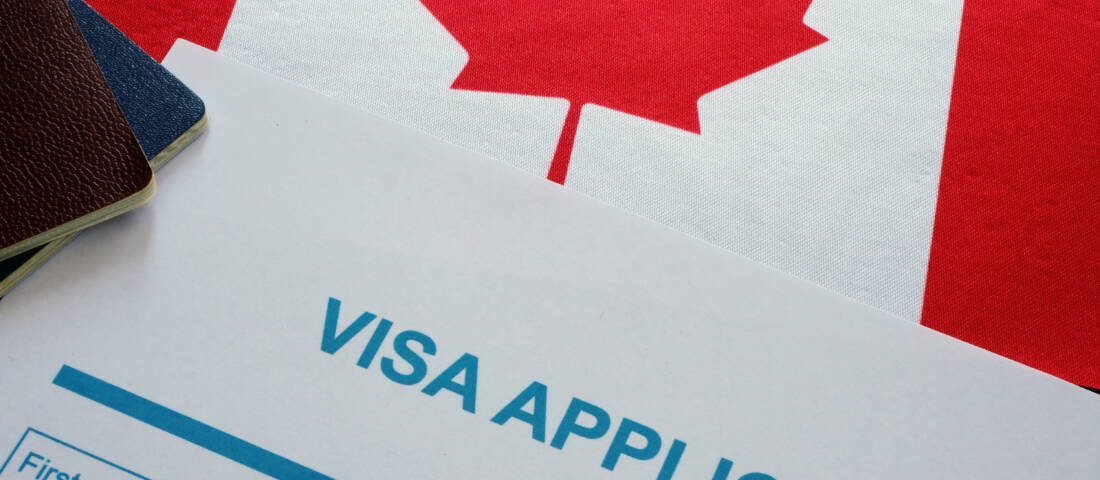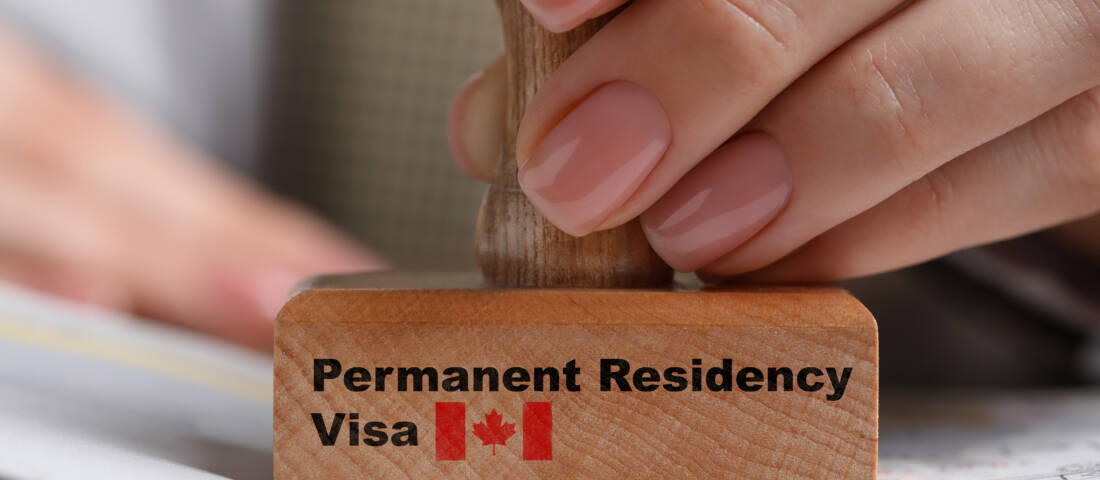Canada has many ways for someone to qualify for immigration as a self-employed person, which is based on their work, skills and education. To immigrate to Canada as a self-employed person falls under the economic streams of Immigration, Refugees and Citizenship Canada (IRCC), which uses the National Occupational Classification (NOC) system to evaluate if the individual's work experience meets the criteria of the program they are applying for.
To qualify as a self-employed person, IRCC requires that individuals must
- have 2 years of relevant experience
- show that they intend to become self-employed in Canada
- show that they have sufficient funds to move to and live in Canada, including with their dependents
- score at least 35 points on a selection grid designed to determine whether you will be able to make an economic contribution to Canada
BOOK YOUR FREE CASE EVALUATION
Top 5 Ways to Immigrate to Canada As a Self-Employed Person in 20203
1. Temporary Work Permit For Self-Employed Individuals
Self-employed individuals may qualify to immigrate to Canada under a temporary work permit, and then later apply for permanent residence. There are different temporary work permit options available to self-employed persons who want to come to Canada. One option is to apply for a self-employed work permit. This permit allows you to come to Canada and work in your own business, as long as you meet the eligibility requirements. A Labour Market Impact Assessment (LMIA) is required for most foreign workers who want to come to Canada to work. The LMIA assesses whether there are enough Canadian workers available to fill the job that the foreign worker is applying for.
- In some cases, self-employed workers may be exempt from the LMIA requirement. This is the case if the self-employed worker is the sole or majority owner of a Canadian business or if the owner of the Canadian business does not have a primary residence outside of Canada.
Another option is to apply for a work permit under the International Experience Canada (IEC) program. The IEC program offers work permits to young people aged 18-35 from participating countries. There are two streams under the IEC program that are relevant to self-employed persons:
- The Working Holiday visa allows you to come to Canada and work for up to 24 months.
- The Young Entrepreneur visa allows you to come to Canada and start or operate your own business for up to 24 months.
Finally, you may also be able to apply for a work permit under a specific employer-specific program. These programs are designed to attract foreign workers to fill specific jobs in Canada.
Moving to Canada as a self-employed person with a temporary work visa who hopes to become a permanent resident can be complicated and complex. It is important to speak with an experienced Canadian immigration lawyer as soon as possible to review your qualifications and identify the best possible opportunity for you to immigrate to Canada.
2. Investor Visas
Some self-employed individuals may qualify for a work permit as a self-employed person under Canadian investor trade treaties.
- Canada-United States-Mexico Agreement CUSMA (formerly NAFTA) investors, who are citizens of the United States or Mexico, can apply for a work permit to manage their Canadian business if they invest in a new or existing business in Canada. The investor must usually be the majority shareholder or sole owner of the business in Canada and must submit a business plan as part of the application.
- Investors from European Union member states who invest in new or existing businesses in Canada may be eligible to apply for a work permit to manage their Canadian business under the Comprehensive Economic and Trade Agreement (CETA). The investor must usually be the majority shareholder or sole owner of the business in Canada and must submit a business plan as part of the application.
- Intra-Company Transfer (ICT) work permits are typically used by multinational corporations to transfer their employees between branches in different countries. However, they can also be used by entrepreneurs who wish to start a new business in Canada.
3. Physician Self-Employed Immigration
In September 2022, IRCC initiated new initiatives to address Canada's doctor shortage. Physicians are no longer be required to have a job offer from a Canadian employer or to have a Canadian language benchmark score. Self-employed physicians can also count their work experience in Canada, even if it was not paid, towards their Express Entry points.
If you are serious about immigrating to Canada as a physician or other health care worker, it is important to speak with an immigration lawyer as soon as possible. They can help you make the process as smooth and efficient as possible.

4. Federal Self-Employed Persons Program For Permanent Residence In Canada
Candidates for the Self-Employed Persons Program (SEPP) for permanent residence must have the following to be eligible:
- Experience: at least two years of relevant experience in cultural activities or athletics.
- Intention: to be self-employed in Canada and make a significant contribution to the cultural or athletic life of Canada.
- Ability: to make a significant contribution to the cultural or athletic life of Canada.
The Canadian government defines a "significant contribution" as something that will have a positive impact on the cultural or athletic life of Canada. This could include things like:
- Creating new jobs
- Promoting Canadian culture or sport
- Developing new talent
- Raising the profile of Canadian culture or sport
Cultural Immigration to Canada for Self-Employed Artists and Actors
Cultural immigration is a very broad group that can include artists, musicians, filmmakers, illustrators, journalists and anyone who is a "behind the scenes" worker in cultural organizations. Costumers, choreographers and directors all fall under this heading. Applicants must also meet the criteria of "world-class" workers. Work experience qualifications for permanent residence under cultural activities are:
- 2 one-year periods being self-employed in cultural activities, or
- 2 one-year periods participating at a world-class level in cultural activities, or
- a combination of a one-year period described in (1), and a one-year period described in (2)
Athletic Immigration for Coaches, Trainers and Athletes
Coaches, trainers and athletes all fall under athletic immigration. Work experience qualifications for permanent residence under athletic immigration are:
- 2 one-year periods being self-employed in athletics, or
- 2 one-year periods participating at a world class level in athletics, or
- a combination of a one-year period described in (1) above, and a one-year period described in (2) above
If you are interested in applying for the Self-Employed Persons Program, you should speak with an immigration lawyer to discuss your specific situation. An immigration lawyer can help you assess your eligibility for the SEPP and prepare your application, and evaluate your qualifications for other immigration opportunities.
5. Canada Digital Nomad Visa
Canada's new digital nomad visa for remote workers is an opportunity for self-employed technology workers and other self-employed persons to immigrate to Canada. If your application is approved, you will be issued a digital nomad visa that allows you to live and work in Canada for up to six months. You can renew your visa for up to two additional six-month periods.
The digital nomad visa is a great way to experience living and working in Canada. It can also be a stepping stone to permanent residency in Canada. If you are a self-employed technology worker or other self-employed individual, an experienced Canada immigration lawyer can help you find the best opportunity to live and work in Canada.
BOOK YOUR FREE CASE EVALUATION
Are You Self-Employed And Want To Move To Canada?
Ackah Business Immigration Law and Evelyn Ackah, an award-winning immigration lawyer recognized for her exceptional skill in preemptively resolving immigration issues, has established a strong reputation for her unwavering commitment to assisting clients in realizing their dream of living and working in Canada.
Ackah Business Immigration Law has offices in Toronto, Calgary and Vancouver to help clients move to new opportunities in Canada. To get in touch with Ackah Law, contact us at (403) 452-9515 or send an email directly to contact@ackahlaw.com.








